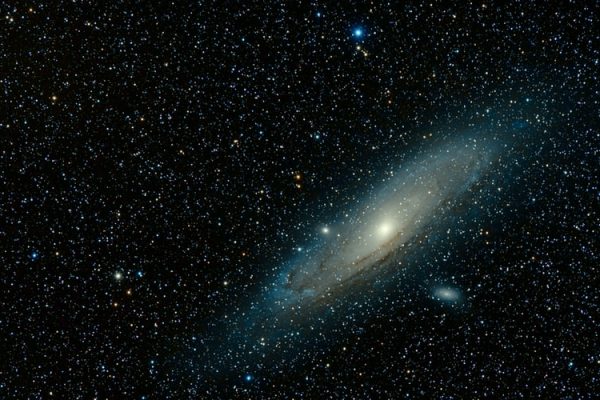Temperatures across the world rose to unprecedented levels while the most vulnerable countries, such as Pakistan, Somalia, and Bangladesh, saw a sharp increase in mortality caused by climate disasters and climate effects – but is anyone actually paying attention?
Temperatures across the world rose to unprecedented levels while the most vulnerable countries, such as Pakistan, Somalia, and Bangladesh, saw a sharp increase in mortality caused by climate disasters and climate effects – but is anyone actually paying attention?
As July marks the hottest month in recorded history, cries for collective global climate action have grown louder, but is anyone listening?
Temperatures across the world rose to unprecedented levels while the most vulnerable countries, such as Pakistan, Somalia, and Bangladesh, saw a sharp increase in mortality caused by climate disasters and climate effects. This is the latest news of the climate crises devastating vulnerable countries that have only just come out of one of the worst drought and flooding seasons in history.
Many of these extremely vulnerable countries that are on the brink of collapse due to climate stressors are Muslim-majority. For these countries, every changing season brings new records, extreme temperatures, and unpredictable weather – all fuelled by climate change.
However, even with the growing body of scientific evidence and the realities of cyclic climate-fueled catastrophes, a group that has been resistant to the calls to tackle climate change holistically has been the diaspora that hails from these vulnerable, Muslim-majority countries. Several factors fuel this resistance, but the most evident one is the fundamental gap in understanding the role their actions are having on the lives of the people who still call those vulnerable countries their home.
Climate accountability is a hard thing to grasp, especially when climate disasters aren’t happening at your doorsteps – yet. It is important to understand that greenhouse gas emissions, the main contributor to climate change, know no borders and it causes a widespread global impact. So, by choosing to pump your diesel car every morning, or constantly purchase cases of plastic water bottles every week, you are contributing to the ultimate suffering of your Muslim brothers and sisters whether you intend to or not.
Another factor to consider is the cost of climate disasters on the Muslim ummah. Every year, there are reoccurring appeals from all the major Islamic charities to support the relief efforts in these vulnerable Muslim-majority countries. Hundreds of thousands of dollars are poured into charity organizations to alleviate the immediate damages caused by droughts, floods, and hurricanes.
Still, these efforts do very little to address the root cause of these occurrences or even raise awareness about the connection between these disasters and climate change. That would redirect the money collected towards elevating people out of poverty, providing homes, or even educating children so that they can have better futures, but instead, every few months funding is needed to place a temporary bandage on a recurring problem.
The consequences of inaction are not felt equally around the world. According to the Institute for Economics & Peace’s Ecological Threat Report (ETR), Bangladesh is one of the top countries with a large share of the population living within five meters above sea level. This makes Bangladeshis highly susceptible to continuous flooding as well as extreme weather events.
Another country that is identified in the report is Somalia, which is a hotspot for ecological threats. The report indicates the country has a high likelihood of facing catastrophic climate events while also having low resilience to combat and prepare for climate disasters. Syria, Yemen, and Sudan are all also considered hotspot countries. None of these stats feels uplifting or motivating, and unless we start a cultural shift in addressing climate change, these statistics will only grow more alarming.
A common point that is constantly brought up in this discussion of climate accountability is “What about the corporations and the governments that are doing all the real damage?”
It would be disingenuous to not state the impact that corporations and governments have on climate change, which is extremely significant. But time and time again, it has been proven that without the everyday consumer or voter caring about these issues, neither of these two major contributors to climate change will be motivated to act.
It is easy to feel powerless in this grand equation of change, but as Islam teaches us, in any battle for good, it is never about the numbers. We, as Muslims, need to do everything in our power to become educated consumers and put significant pressure on companies to adopt our beliefs on climate change, as opposed to using our hard-earned money to fuel the destruction of our homelands.
We also need to make our voices heard in the public sphere by voting and supporting candidates who maintain addressing climate change as a core principle of their campaign. This is just one of many things Muslims can do to better the environment, but most importantly, we must never forget our duties as stewards of the earth.
Here are five action items we can all take to do our part to help better the environment for those at home and abroad:
- Educate yourself on the link between human action and climate change
- Participate in community activism to help educate and motivate others to consider taking action
- Donate to causes that help provide relief from climate impacts as well as build resilience against future extreme weather events
- Encourage your local mosque or family members to reduce their use of plastic waste
- Vote for candidates that have climate change as a key priority
If none of what you have read so far has convinced you to consider changing, then you should consider simply due to your responsibility as a Muslim.
Anas bin Malik (may Allah be pleased with him) narrated that the Prophet (peace and blessings of Allah be upon him) said: “None of you will believe until you love for your brother what you love for yourself.” This hadith is not restricted to those that you may see or know, It applies to every one of your Muslim brothers and sisters. None of us would love stability and safety for just ourselves, so we must do what we can to secure that for our brothers and sisters.





